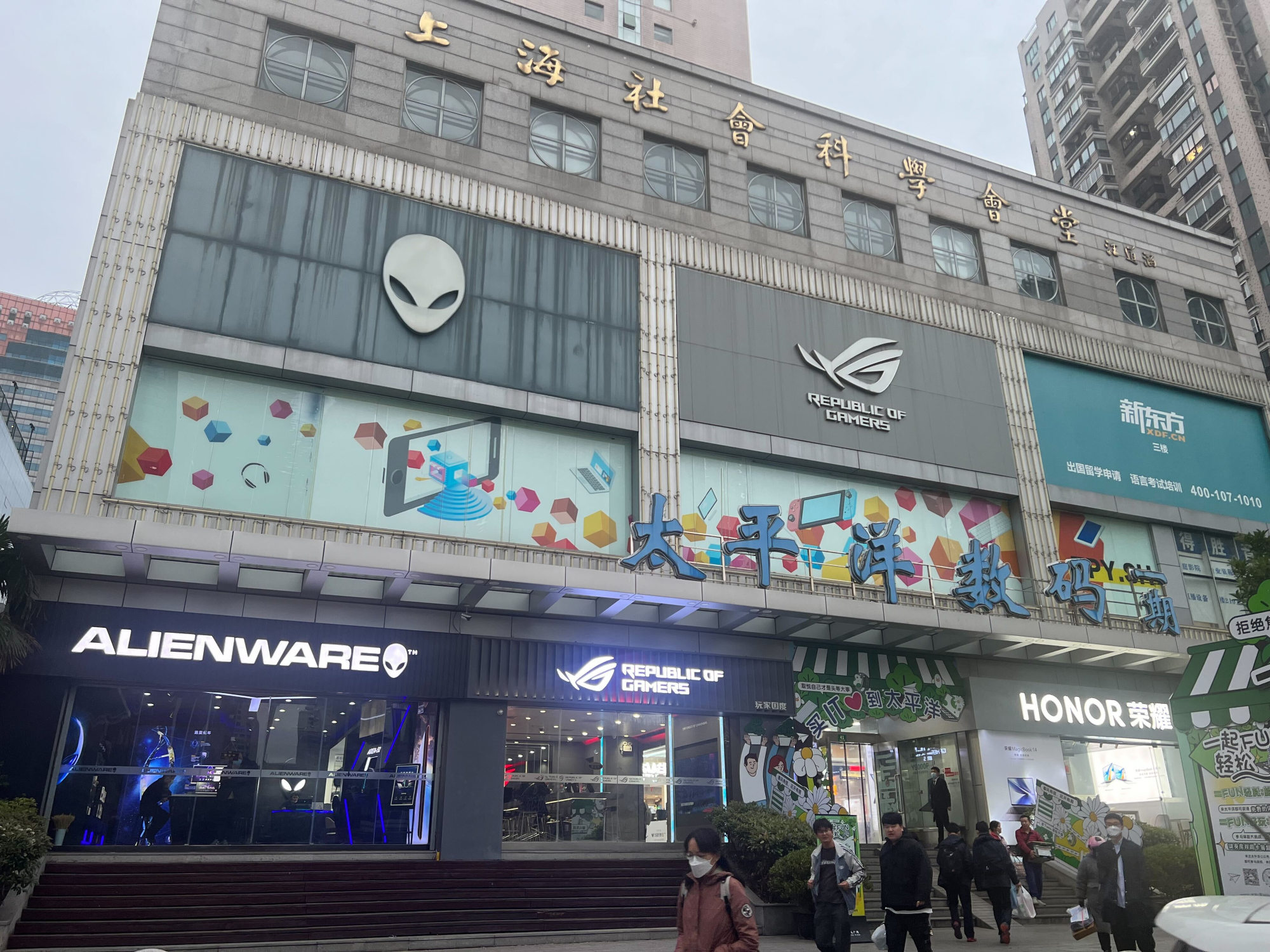
Tech war: Beijing’s cybersecurity review into US memory chip maker Micron opens opportunity for Chinese suppliers to fill gap in market
- A possible ban on Micron products in China is expected to see Yangtze Memory Technologies Co and other mainland suppliers fill any void in the market
- The local inventory of memory products has not been affected by Beijing’s Micron review owing to an abundant supply from alternative mainland sources
“In the memory chip sector, China has basically solved the bottleneck problem,” Chen said.

At a small kiosk that sells a wide range of electronic components on the first floor of Pacific Digital Plaza, 30-year-old vendor Liu Bei said “Samsung is still the best choice” when buying a solid-state drive (SSD) – a storage device that typically uses a flash memory chip.
But he also indicated that local SSD products, such as those from YMTC and Shenzhen KingBank Technology Co, have become good alternatives to Samsung. “You can find very few distributors for Micron or other brands in the market,” he said.
Without providing any details, other merchants at the electronics hub indicated that domestic memory chip suppliers like YMTC, which have set lower prices than their foreign rivals, have increased competition in the market.
They added that the local inventory of memory products has not been affected by Beijing’s Micron review because of an abundant supply of devices from alternative mainland sources.
Beijing’s probe into US chip firm Micron could help Chinese suppliers, South Korean rivals
That review marks a “major concern” for other companies operating in the country, according to a statement this week from Lester Ross, chair of the policy committee at the American Chamber of Commerce in China.
While the Micron investigation threatens to ratchet up Sino-US tensions, the situation has also helped boost the profile of YMTC and other Chinese suppliers in terms of how they can quickly meet the local market’s requirements.

A long list of Chinese SSD brands on JD.com – including ZhiTai, Move Speed, Gloway and Maxsun – already claim to use YMTC memory chips as part of their marketing pitch.
If that YMTC project, code-named Wudangshan, proves successful, it would represent a breakthrough in China’s efforts to become self-sufficient in semiconductor production, as US-led restrictions have blocked mainland companies’ access to advanced chip-making equipment because of national security concerns.
Why China opened an investigation into US semiconductor firm Micron Technology
Such a move to abandon the mainland, however, would run against business rationale for South Korean chip companies if and when a ban on Micron gets implemented, according to Renmin University’s Chen.
Echoing that assessment, the director at research institute Shendu Technology, Zhang Xiaorong, said: “Now that the global consumer electronics market is going down, chip companies are counting on the Chinese market to drive growth.”
Samsung, for example, reported on Thursday a record quarterly loss of 4.58 trillion won (US$3.4 billion) at its chip division, punctuating concerns about a broad tech downturn. South Korea’s largest company saw its revenue from China decline from 16 per cent to 12 per cent between 2017 and 2022, according to its latest annual report.
US urges South Korea not to fill China shortfalls if Beijing bans Micron chips
The global memory market is forecast to reach US$92.3 billion this year, down 35.5 per cent from 2022, because of an “overcapacity of chips and excess inventory”, according to tech research firm Gartner.
For Micron, with sales on the mainland and Hong Kong accounting for 16 per cent of its total revenue in 2022, a ban on its products in the world’s largest semiconductor market would be the firm’s “worst-case scenario” amid “slumping demand in the [global] memory market”, said Arisa Liu, a research fellow and director focused on semiconductors at the Taiwan Institute of Economic Research.
Additional reporting by Che Pan


